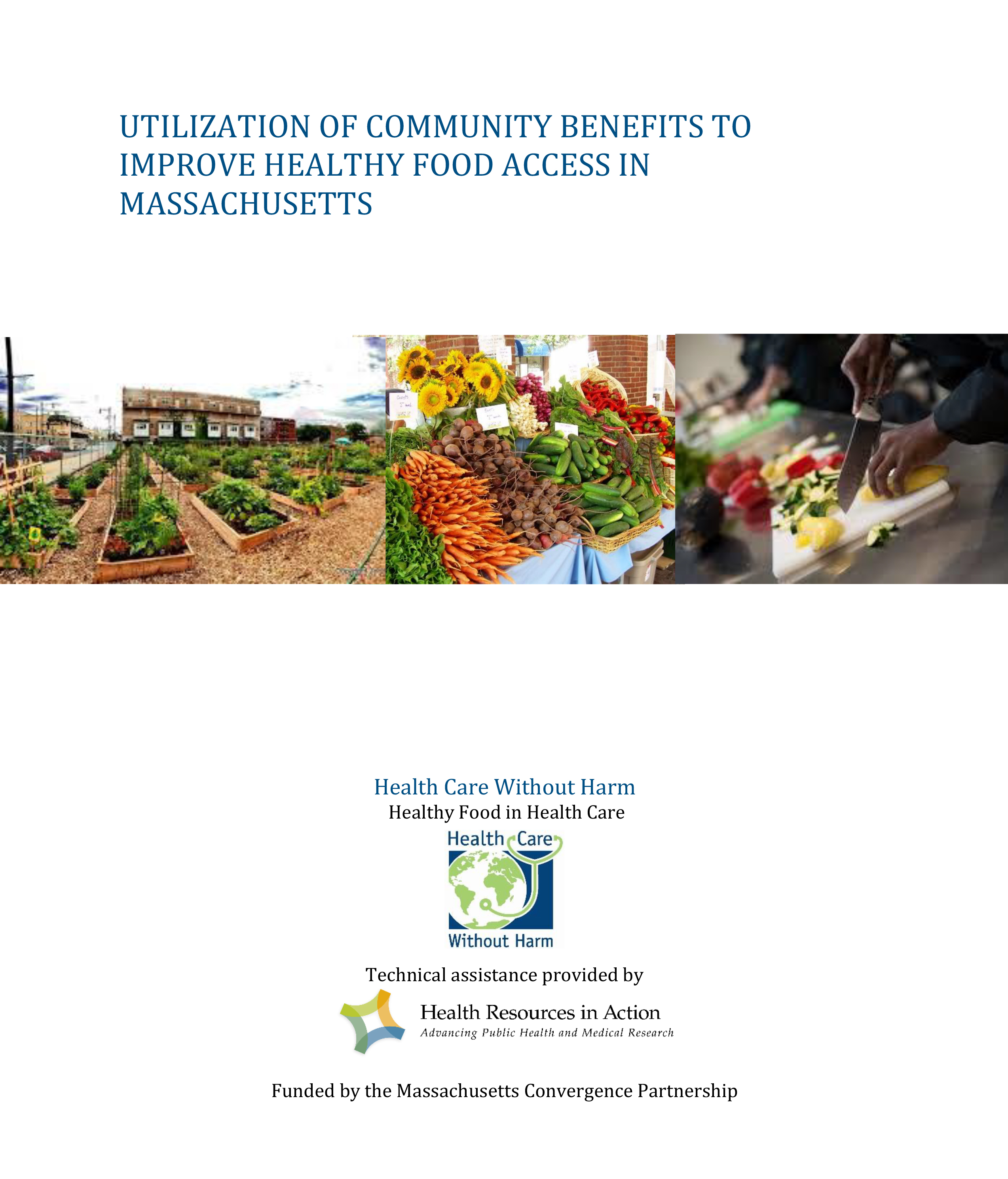Using Community Benefits to Improve Healthy Food Access
Across Massachusetts, hospitals are emerging as partners for farmers markets, healthy corner store initiatives, and a variety of food access programs.
Yes, that’s right, hospitals.
 As described in Health Care Without Harm’s report, Utilization of Community Benefits to Improve Healthy Food Access in Massachusetts, new IRS rules for tax-exempt hospitals are encouraging them to “prevent illness, to ensure adequate nutrition, or to address social, behavioral, and environmental factors that influence health in the community”. The shift in emphasis for hospitals to offer community benefits that go beyond access to services creates an opportunity for the health care sector to play a major role in improving access to healthy food and preventing chronic-diet related disease.
As described in Health Care Without Harm’s report, Utilization of Community Benefits to Improve Healthy Food Access in Massachusetts, new IRS rules for tax-exempt hospitals are encouraging them to “prevent illness, to ensure adequate nutrition, or to address social, behavioral, and environmental factors that influence health in the community”. The shift in emphasis for hospitals to offer community benefits that go beyond access to services creates an opportunity for the health care sector to play a major role in improving access to healthy food and preventing chronic-diet related disease.
What’s more exciting than this possibility? The fact that Massachusetts hospitals are starting to act on it.
A review of community benefit reports revealed that in fiscal year 2013 hospitals across the Commonwealth supported 80 initiatives to improve diet and increase access to healthy food. These efforts included meal programs, educational opportunities, farmers markets, mobile markets, community gardens, and much more.
Over half of the tax-exempt hospitals in Massachusetts have taken steps to improve food access in their service areas. However, current efforts represent only a small fraction of hospital investments and with a 12% statewide food insecurity rate, there is significant room for growth. The Health Care Without Harm report profiles strategies to address acute food insecurity and address the broader environmental factors that contribute to a poor diet. They include routine food security screening of patients in emergency rooms, development of new retails outlets in underserved neighborhoods, and fruit and vegetable incentive programs.
However, the impact from the IRS rule change will not come from a single program or a single hospital.
Transformation of the community food environment and the state-wide food system will come from hospitals working with each other and community partners to consistently make healthy food the easy choice at all places residents live, work and play. Health Care Without Harm has been working with hospitals for nearly a decade to transform the food that they serve. The new IRS rule provides an opportunity for the health care sector to think about the impact of the food environment beyond the walls of their facilities and to play a role in improving healthy food access in the community at-large. Such efforts can have a major impact on public health and may improve quality of life for thousands of individuals across the Commonwealth who live in underserved neighborhoods.
Changing the food environment is a mighty effort that requires all hands on deck. Health Care Without Harm is excited that the new IRS rule may encourage more hospitals to join in these efforts.
 Jennifer Obadia is our Regional Coordinator for New England
Jennifer Obadia is our Regional Coordinator for New England
